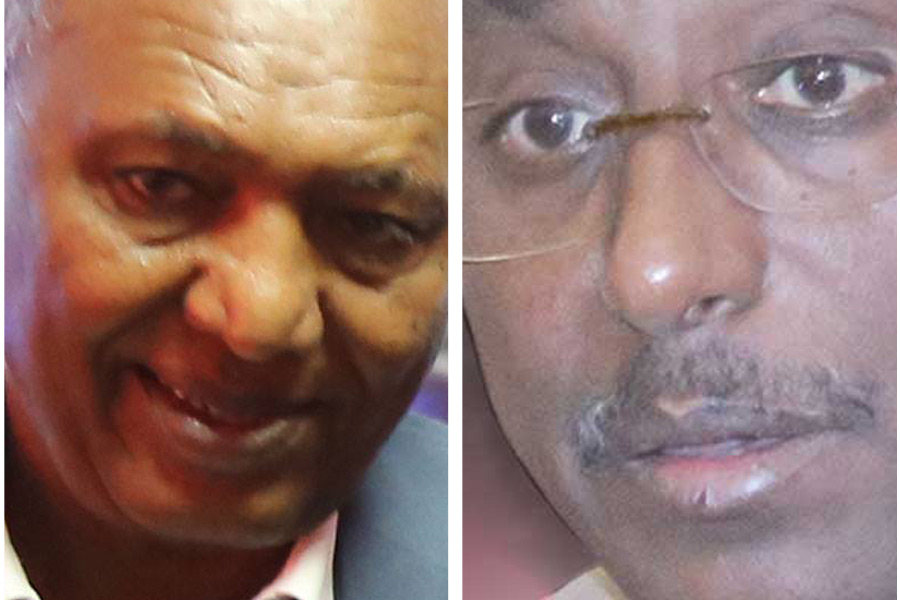
Fortune News | Jan 23,2019
The right to impose taxes on property ownership is granted to regional states after a joint session of legislative houses passed a resolution on January 11, 2023.
Co-chaired by Tagesse Chaffo and Agegnehu Teshager, house speakers for parliament and federation, the members of the two houses voted to give the mandate to regional states, dividing it with the federal government.
According to the resolution, regional states give the collection mandate to the local administrations within their constitutional powers.
Agegnehu reiterated the constitutional provision allowing the legislative houses to devise a resolution when such undefined issues arise.
Standing Committees of the plan, budget and finance and Subsidy Budget & Shared Revenue Affairs have put forth the motion to allow cities and local administrations or give the authority for regions and divide it between the federal and regional states, with the final vote gaining more than two-thirds.
However, Parliamentarians questioned the affordability, equity, and relevance of imposing property tax during galloping inflation. Leaders of the standing committees Shimelis Abdisa, Desalegn Wedajo and Minister for Finance Ahmed Shide defended its relevance and timing in promoting and supporting growing "urbanisation."
The majority of the members said the resolution is appropriate and will allow the revenue collection system of our country to be updated and help provide basic services to the society by expanding the infrastructure.
Some argued the public is already burdened with taxes, and towns should not be given the authority to tax property but to use their internal revenue.
According to Shimelis Abdisa, president of the Oromia Regional State, the resolution will facilitate the fair distribution of resources, prevent corruption, expand the tax base and address the budget deficit. He said it empowers regional states to develop their cities and towns in their own capacity while decreasing the unemployment rate with the finance.
The resolution was ratified with four votes against and five abstentions.
Minister for Finance Eyob Tekalign (PhD) praised the resolution as a “significant move” that gives the Ministry the green light to prepare a bill.
Eshetu Gebremariam, standing committee member of Urban Infrastructure Development & Transport Logistics said collecting property taxes from commercial centres and real estate helps create job opportunities and ease the rising poverty.
"It's a significant step in filling the regional states' budget deficit," he said.
Eshetu told Fortune that a draft proclamation on a national level is underway on the rates and division.
Tadesse Lencho, an Assistant Professor at Addis Abeba University and managing partner at Tbest Law Firm, has researched Ethiopian tax policy and legislation. He explained that the resolution allows citizens to get the basic infrastructure if appropriately implemented.
According to him, property tax helps to develop urbanization and has to focus on residential buildings as the commercial ones already have a lot of taxation to cover. Therefore, he recommends the government strictly watch not to double tax those sectors.
Tadesse believes it should be carefully implemented, not to let regional states enter an unhealthy competition, setting regulations and control.
PUBLISHED ON
Jan 14,2023 [ VOL
23 , NO
1185]

Fortune News | Jan 23,2019

Fortune News | Dec 05,2018

Radar | Apr 15,2023

Fortune News | Jun 01,2024

Fortune News | Jun 29,2019

Fortune News | Mar 21,2020

Fortune News | Jan 05,2019

Radar | Jan 18,2020

Radar | May 03,2025

Radar | Jul 29,2023

Dec 22 , 2024 . By TIZITA SHEWAFERAW
Charged with transforming colossal state-owned enterprises into modern and competitiv...

Aug 18 , 2024 . By AKSAH ITALO
Although predictable Yonas Zerihun's job in the ride-hailing service is not immune to...

Jul 28 , 2024 . By TIZITA SHEWAFERAW
Unhabitual, perhaps too many, Samuel Gebreyohannes, 38, used to occasionally enjoy a couple of beers at breakfast. However, he recently swit...

Jul 13 , 2024 . By AKSAH ITALO
Investors who rely on tractors, trucks, and field vehicles for commuting, transporting commodities, and f...

Jul 12 , 2025
Political leaders and their policy advisors often promise great leaps forward, yet th...

Jul 5 , 2025
Six years ago, Ethiopia was the darling of international liberal commentators. A year...

Jun 28 , 2025
Meseret Damtie, the assertive auditor general, has never been shy about naming names...

Jun 21 , 2025
A well-worn adage says, “Budget is not destiny, but it is direction.” Examining t...